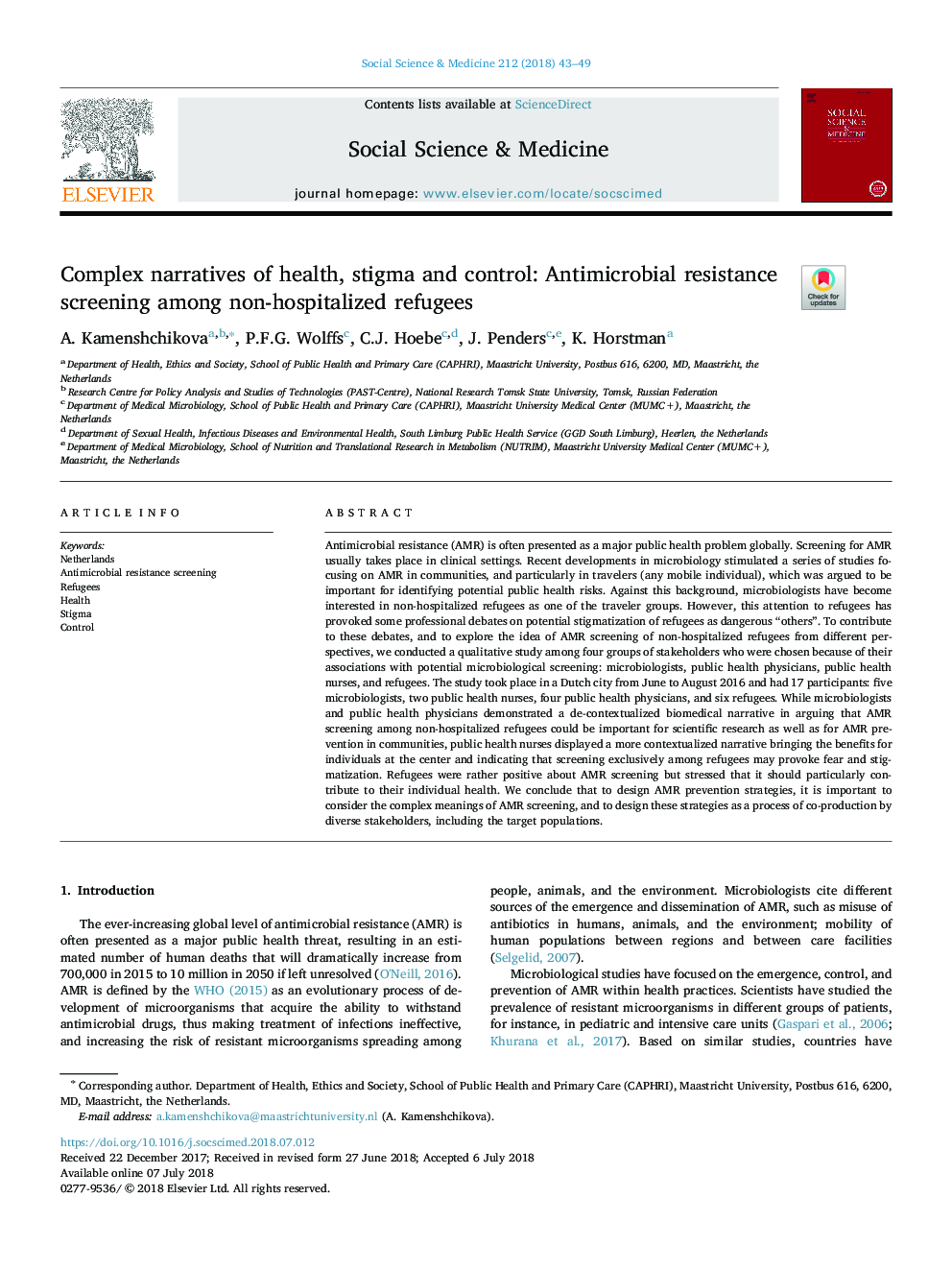| کد مقاله | کد نشریه | سال انتشار | مقاله انگلیسی | نسخه تمام متن |
|---|---|---|---|---|
| 7327213 | 1475957 | 2018 | 7 صفحه PDF | دانلود رایگان |
عنوان انگلیسی مقاله ISI
Complex narratives of health, stigma and control: Antimicrobial resistance screening among non-hospitalized refugees
ترجمه فارسی عنوان
روایات پیچیده سلامت، ننگ و کنترل: غربالگری مقاومت ضد میکروبی در میان پناهندگان غیر بستری
دانلود مقاله + سفارش ترجمه
دانلود مقاله ISI انگلیسی
رایگان برای ایرانیان
کلمات کلیدی
هلند، غربالگری مقاومت ضد میکروبی، پناهندگان سلامتی، استقامت، کنترل،
موضوعات مرتبط
علوم پزشکی و سلامت
پزشکی و دندانپزشکی
سیاست های بهداشت و سلامت عمومی
چکیده انگلیسی
Antimicrobial resistance (AMR) is often presented as a major public health problem globally. Screening for AMR usually takes place in clinical settings. Recent developments in microbiology stimulated a series of studies focusing on AMR in communities, and particularly in travelers (any mobile individual), which was argued to be important for identifying potential public health risks. Against this background, microbiologists have become interested in non-hospitalized refugees as one of the traveler groups. However, this attention to refugees has provoked some professional debates on potential stigmatization of refugees as dangerous “others”. To contribute to these debates, and to explore the idea of AMR screening of non-hospitalized refugees from different perspectives, we conducted a qualitative study among four groups of stakeholders who were chosen because of their associations with potential microbiological screening: microbiologists, public health physicians, public health nurses, and refugees. The study took place in a Dutch city from June to August 2016 and had 17 participants: five microbiologists, two public health nurses, four public health physicians, and six refugees. While microbiologists and public health physicians demonstrated a de-contextualized biomedical narrative in arguing that AMR screening among non-hospitalized refugees could be important for scientific research as well as for AMR prevention in communities, public health nurses displayed a more contextualized narrative bringing the benefits for individuals at the center and indicating that screening exclusively among refugees may provoke fear and stigmatization. Refugees were rather positive about AMR screening but stressed that it should particularly contribute to their individual health. We conclude that to design AMR prevention strategies, it is important to consider the complex meanings of AMR screening, and to design these strategies as a process of co-production by diverse stakeholders, including the target populations.
ناشر
Database: Elsevier - ScienceDirect (ساینس دایرکت)
Journal: Social Science & Medicine - Volume 212, September 2018, Pages 43-49
Journal: Social Science & Medicine - Volume 212, September 2018, Pages 43-49
نویسندگان
A. Kamenshchikova, P.F.G. Wolffs, C.J. Hoebe, J. Penders, K. Horstman,
